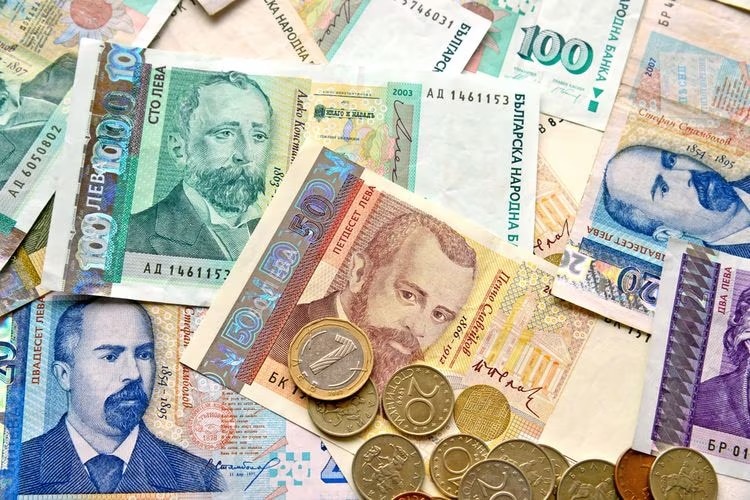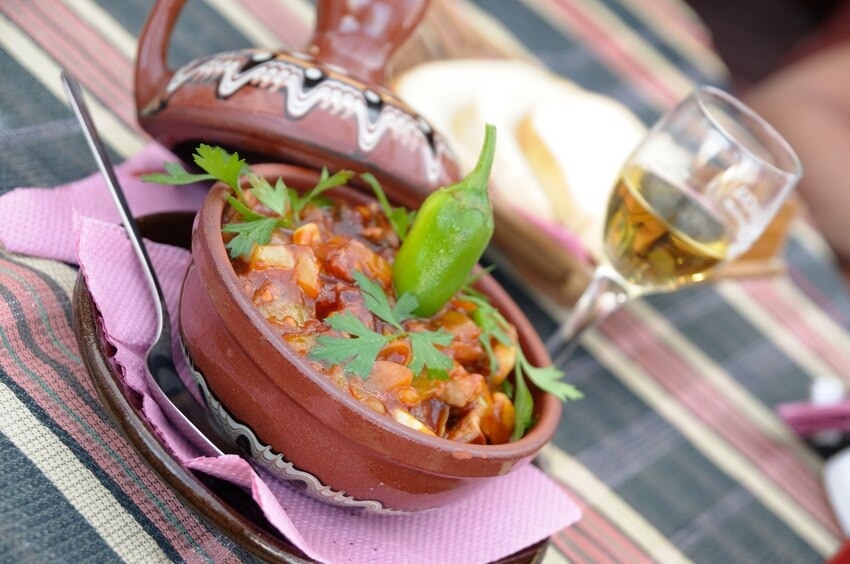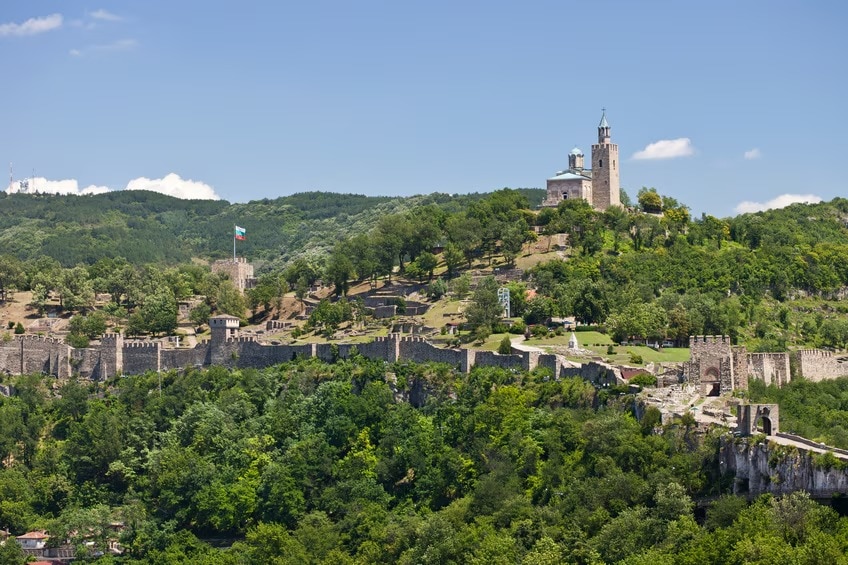Bulgaria Travel Tips and Information
Official Name
Republic of Bulgaria
Capital
Sofia
Population
Country Code
Approximately 6.7 million
BG
Country Code (international calls)
+359
The flight time to Bulgaria is approximately ---- hours. Check the climate, currency, religion, manners, other information of Bulgaria below. Wishing you pleasant travels to Bulgaria.
Located in Southeastern Europe, along the eastern part of the Balkan Peninsula, Bulgaria borders Romania to the north, Greece, and Turkey to the south, Serbia and the Republic of North Macedonia to the west, and the Black Sea to the east.
Local Climate / Weather
Bulgaria experiences a diverse climate, with distinct seasons that bring unique travel opportunities. The country’s climate is continental, with hot summers and cold winters. Summers, lasting from June to August, are warm and sunny, with temperatures often reaching 30°C (86°F) in July, making this an ideal season for beach lovers to explore the Black Sea coast. Winters, from December to February, are cold, particularly in the mountains where snowfall is heavy, providing excellent conditions for skiing and snowboarding. Spring and autumn are mild, with blooming landscapes in spring and beautiful fall foliage, making these seasons perfect for outdoor activities and cultural exploration. For those planning a trip, seasonal travel advice can help make the most of Bulgaria’s varied weather. Summer is best for coastal vacations and exploring historic cities like Varna and Burgas along the Black Sea. Travelers in winter can enjoy winter sports in popular mountain resorts such as Bansko and Borovets. Spring and autumn offer milder temperatures, ideal for hiking in the Rhodope Mountains, visiting wineries, or touring historical sites without the summer crowds. It’s wise to pack for temperature fluctuations, as mornings and evenings can be cooler, even in summer. Bulgaria is also known for its vibrant events and festivals throughout the year, celebrating its rich history and traditions. One of the most famous is the Rose Festival in Kazanlak, held in early June, where travelers can experience Bulgaria’s rose oil production heritage. In March, the Martenitsa festival marks the beginning of spring with symbolic red and white bracelets. December brings Christmas markets in Sofia and other major cities, while Kukeri, a traditional masked festival in January, showcases Bulgaria’s folklore through colorful costumes and dance. These events provide a deep insight into Bulgarian culture, and timing your visit with a festival can add a memorable dimension to your travel experience.
Currency & Tipping
Currency
Bulgaria uses the Bulgarian Lev (BGN) as its official currency. One lev is divided into 100 stotinki, and you’ll find both coins and banknotes in circulation. Most establishments, including hotels, restaurants, and tourist sites, accept cards, but it’s always a good idea to have some cash on hand, especially in rural areas or for small purchases.
Tipping
Tipping is common and appreciated in Bulgaria, with a general guideline of 10-15% in restaurants if the service is good. In cafes and casual spots, rounding up the bill is often sufficient. For other services, such as hotel staff, taxi drivers, and tour guides, small tips are customary and show appreciation but are not obligatory. Having some small change in Bulgarian levs makes tipping easier and is warmly received.
Useful Travel Information

Voltage & Electrical Outlets
In Bulgaria, the voltage is 230 volts, and the outlets use the European-style Type F sockets with two round pins. Travelers from countries with different plug types or voltage standards may need an adapter or a voltage converter to use their devices safely.

Internet Connectivity
The internet environment in Bulgaria is generally reliable and accessible, with high-speed internet widely available in urban areas and many rural regions. Public Wi-Fi is common in cafes, hotels, and airports, though speeds and security can vary. Bulgaria also has a growing network of fiber-optic connections, making it one of the faster internet environments in Eastern Europe.
Water for Consumption (Drinking Water)
Drinking water quality in Bulgaria is generally safe in most urban areas, where tap water meets EU standards. However, some visitors prefer bottled water, especially when traveling to rural areas, as water quality can vary in certain locations. Bottled water is inexpensive and widely available for those who wish to take extra precautions.
Culture, Religion & Social Etiquette
Culture
Bulgaria's culture and traditions are a unique blend of Eastern European, Slavic, and Ottoman influences. Bulgarian folk music, with its intricate rhythms and soulful melodies, is iconic, and traditional crafts like embroidery, pottery, and wood carving are still cherished. Festivals, such as the Kukeri masquerade, where people dress in elaborate costumes to ward off evil spirits, reflect Bulgaria’s ancient customs and lively community spirit.
Religion
Religion in Bulgaria is predominantly Eastern Orthodox Christianity, which shapes much of the country's cultural identity. There are also Muslim, Catholic, and Jewish communities, resulting in a diverse religious landscape. Visitors will notice the beautiful Orthodox churches, with their stunning frescoes and icons, as prominent cultural landmarks throughout the country.
Social Etiquette
When it comes to manners, Bulgarians are generally warm and hospitable, especially toward visitors. It’s customary to greet people with a firm handshake and direct eye contact. Travelers may find it interesting that Bulgarians often shake their heads to mean "yes" and nod for "no," a unique gesture that can be confusing at first. Respecting elders and being polite is valued, and small gifts are appreciated if invited to a Bulgarian home, reflecting their welcoming culture.
Food Culture
Bulgarian food culture offers a delightful mix of Balkan, Mediterranean, and Slavic flavors, making it a unique experience for visitors. Traditional Bulgarian cuisine centers around fresh, locally-sourced ingredients like vegetables, dairy, and meats, with dishes like shopska salad, banitsa (a savory pastry), and hearty stews being popular choices. Street food in Bulgaria is a must-try, with favorites like kebapche (grilled minced meat) and burek (stuffed pastries) available at local markets and food stalls. For an authentic dining experience, try well-loved local restaurants such as Made in Home in Sofia, which features creative takes on traditional recipes, or the cozy mehanas (taverns) found throughout Plovdiv, where you can enjoy regional specialties paired with Bulgarian wines.
Major Tourist Attractions & UNESCO World Heritage Sites
Major Tourist Attractions
Bulgaria boasts a variety of major tourist destinations that showcase its rich history, natural beauty, and cultural vibrancy. Sofia, the capital city, is a top destination with a mix of ancient and modern attractions like the Alexander Nevsky Cathedral, the National Palace of Culture, and Vitosha Boulevard, perfect for shopping and dining. Plovdiv, one of Europe’s oldest cities, charms visitors with its Roman amphitheater, colorful Old Town, and thriving arts scene. For nature enthusiasts, the Rila Mountains offer hiking trails leading to scenic views and the stunning Seven Rila Lakes, while the Black Sea coast, particularly Sunny Beach and Varna, is ideal for beach lovers seeking relaxation and water activities.
UNESCO World Heritage Sites
Bulgaria is also home to several UNESCO World Heritage Sites that give insight into the country’s rich cultural heritage. The Rila Monastery, with its vibrant frescoes and architectural beauty, is a spiritual and historical landmark nestled in the mountains. The ancient Thracian Tomb of Kazanlak offers a glimpse into the lives of the Thracians, showcasing intricate murals and artifacts. Visitors can also explore the Rock-Hewn Churches of Ivanovo, a complex of medieval churches carved into the cliffs, famous for their stunning frescoes. These sites not only highlight Bulgaria’s fascinating past but also provide unique experiences for travelers interested in history, art, and archaeology.
Travel FAQs
What is the safety situation in Bulgaria like? What should I be careful of?
Bulgaria is generally safe for travelers, with low levels of violent crime. However, petty crimes like pickpocketing and bag snatching can occur in crowded areas and on public transportation.
Is English spoken in Bulgaria?
nglish are not commonly spoken in Bulgaria; Bulgarian is the official language, though English is sometimes understood in major cities and tourist areas, especially among younger people and those in the hospitality industry.
What is the most popular airport to fly into Bulgaria?
One easily accessible airport is Sofia Airport, located in the eastern part of the capital.
What is the best season to visit Bulgaria?
The best season for tourism in Bulgaria is fairly long, from spring to autumn, and each season has its own unique charm.




